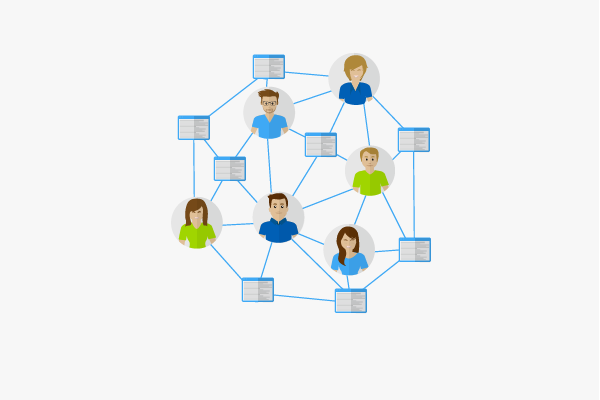Blogosphere
Blogosphere is used to refer to the collectivity of a web blog, blog in short. It is a virtual room where millions of users maintain their web blogs, network, and form communities.
The abstract term, blogosphere, was first used ironically by Brad L. Graham in 1999. Within just a short time, the term spread among the network community of bloggers. It was used to refer to people who autonomously published a blog. The use of the term is also often associated with a liberal position on the use of the Internet. This is because bloggers also publish their own chosen contents on their private blogs and use hyperlinks to link these with other blogs. They are completely unlimited in the choice of the contents and place much value in this form of Internet freedom, which is based on the freedom of expression.
The links and recommendations of other bloggers and blogs result in numerous references that can make certain parts of the blogosphere be viewed as networks. Bloggers post comments, set up links, and generate trackbacks and pingbacks through certain recommendations which in turn place a reference in the form of a link. This forms a network of blogs and references that, if illustrated graphically, can be perceived as a sphere.
Blogs that get a lot of links are referred to as the A-list: Trendsetters in the blogosphere that are characterized by a particularly strong network.[1] Numerous services are offered for exclusive blog searches. Examples include the Google Blog Search, Technorati, Bloglines, and Rivva. Also worth mentioning are the RSS feed and Atom feeds. These continuously inform subscribers about new contents in the blogs.
Importance for search engine optimization
In particular, the fact that certain blogs and communities can be regarded as networks of links and websites, and also viewed by a search engine as such, is relevant for search engine optimization. With regard to online marketing, one hereby attempts to win over bloggers and blogs for a natural link building.
If organic link building using blogs and bloggers is desired, identifying so-called multipliers is recommended. Here, the aforementioned A-list comes into play. The stronger a network is, the more attention the bloggers, users, and even mass media will generate. In addition, a link of multipliers, i.e. trendsetters in the blogosphere, should be regarded as a high-quality backlink. However, it is important to ensure that the blogs chosen by a company are thematically relevant and are not just mere link farms. This type of content marketing does not simply entail the placement of links and product recommendations. It also involves the branding of a company and creative concepts that are not only aimed at increasing sales, but which can win over the real interests of the online community through an unconventional approach.
References
- ↑ Conversations in the Blogosphere: An Analysis "From the Bottom Up". Information Visualization Laboratory. Accessed on 11/07/2013

